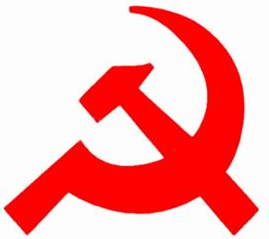N°12-02/04/2021 All over the world, the situation linked to the Covid19 pandemic is deeply affecting populations, especially the most vulnerable and the most deprived.
It is no exaggeration to say that this pandemic exposes class differences and sharply increases social inequalities. Among the populations most affected, and there are many: partial unemployment or redundant employees, the elderly ... young people pay a heavy price. Of course we are talking here about young people from working-class backgrounds who have to fight for jobs, for training and who often have to work for a living. This youth, as we are seeing in France, is in great difficulty.
Studies have become an ordeal due to the lack of contact, odd jobs have dried up which provided the necessary resources for a living and the future is obscured for lack of perspective. This is true all over the world. It is therefore significant that young people find themselves at the forefront of struggles in many countries. Multiform struggles which quite simply express their aspiration to live, to be able to express themselves, to envisage a better future in peace and freedom.
Thus, in Senegal the demonstrations against the dictatorship of President Macky Sall, the man of Françafrique in the service of the French capitalists, are marked by the strong participation of the youth. These demonstrations led the government to a tactical retreat, forcing it to release MP Ousmane Sonko, whose arrest sparked an unprecedented wave of protest. According to political scientist Maurice Soudieck Dione: "The figure of Ousmane Sonko helped federate the expression of frustrations,[…] youth unrest, poverty, unemployment, survivors and returnees from illegal immigration which caused many deaths, the restrictions on freedoms linked to the pandemic have given a particular virulence and violence to this wave of protest. ".
This commitment of the youth is also found in Burma against the military coup, where the fight is increasingly oriented towards challenging the economic interests of the army through the organization of strikes, such as in railways. In Burma too, the repression is terrible, causing dozens of deaths. Doctors, teachers, lawyers and other officials have gone on strike since the coup. Unions called for stepping up the movement from March 8 to cripple the economy and put pressure on the junta who, for their part, warned officials: those who do not return to work from March 8 will be sacked.
In Turkey, the students who have known only Erdogan’s regime no longer accept the moral order imposed on them by a dictatorial regime which uses religion to corset the social and democratic aspirations of the people. Despite the repression there too, they rose up to demand that the stranglehold of power on the university cease.
In Greece too, students are fighting to demand that they be able to resume their studies. The Communist Party of Greece and the Communist Youth expressed their solidarity with the 31 students of the Aristotle University of Thessaloniki who were arrested on January 20 while holding a General Assembly of their Association. On January 23, thousands of students in Thessaloniki, Athens and other cities in Greece organized massive mobilizations denouncing the police state and state repression. Eventually, the trial of the 31 students was postponed and they were released.
We would continue to report on these struggles for bread and freedom involving youth around the world. Their common feature is that faced with the old capitalist world which offers them only repression and misery, the world’s youth want to impose other choices. Are they clearly associated with a questioning of the capitalist system and a necessary change of society? Probably not, however these struggles which bring new demands come into conflict with the system of capitalist exploitation and domination. It is up to us to support and encourage them and give them meaning in the process of class struggle. Therefore we support the initiative of youth organizations to express the anger of young workers and students on March 16.


